20 Years Later, Samurai Champloo Ages Like Fine Wine
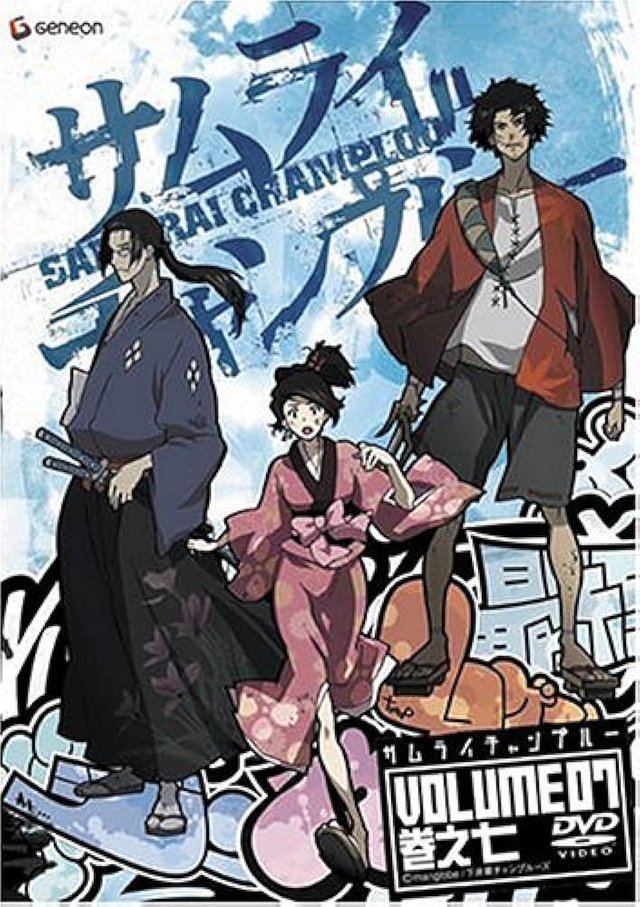
Japanese anime had a small but growing fanbase which skyrocketed in numbers after this medium was thrust into mainstream acceptance (with the help of “Afro Samurai” in 2005 on Spike TV). Before Spike TV aired “Afro Samurai” in 2005, anime fans had the late-afternoon Toonami block on Cartoon Network.
When Cartoon Network replaced Toonami with Miguzi and pushed the former to Saturday nights, we got introduced to “Samurai Champloo.” I was drawn to the series when it aired in 2004 for several reasons.
The first reason is that Steven Blum voices one of the three main characters, Mugen. I have been a huge fan of Steven Blum since “Cowboy Bebop” and “Big O.” Blum had that unique voice that kept drawing me to his work and it made me a fan of Spike Spiegel, one of the heroes from “Cowboy Bebop.”
The second reason is that Kirk Thornton voices another of the three main characters, Jin. I have been a fan of Thorton’s work such as the voice of Beyond the Grave in the animated adaptation of “Gungrave” and Klein in “Sword Art Online.”
The third reason is that the show was directed by Shinichiro Watanabe who also directed “Cowboy Bebop.” I can see why “Samurai Champloo” had the vibes of “Cowboy Bebop” while having its unique vibe.
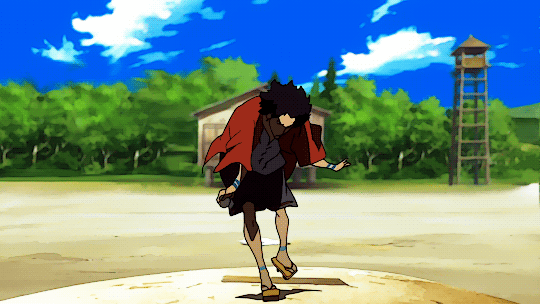
The story takes place in Feudal Japan, despite the chronological anachronisms (revealed later in the series), in which reluctant heroine Fuu works as a waitress at a teahouse. She gets harassed by the son of a corrupt official and begs for help, which leads her to Mugen. The brawling swordsman agrees as long he gets a free meal out of it. Fuu obliges and Mugen dispatches the enemy.
Jin, meanwhile, is outside as he spots the son’s bodyguards harassing a couple of peasants.
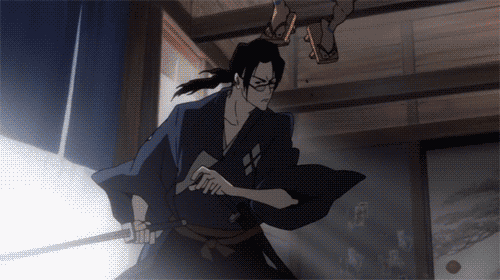
After Jin dispatches the bodyguards, he enters the teahouse where Mugen mistakes him for one of the son’s bodyguards and a fight ensues destroying the building. The two men are arrested on the spot where they’re sentenced for execution the following day. Fuu rescues them and then proposes a coin toss.
If Fuu loses, Jin and Mugen can continue from where their fight left off before the authorities arrived and hauled their butts to jail. If Fuu wins, they have to protect her while she journeys to find the elusive “Sunflower Samurai.”
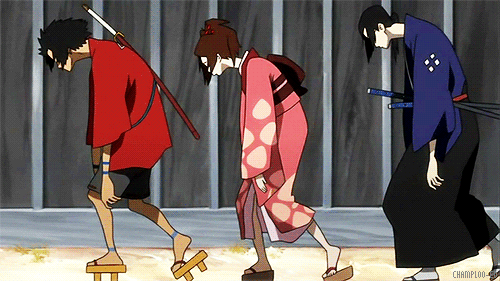
What begins as a “harmless” journey gets dangerous because the three heroes have some direct or indirect connection to this person. They cross paths with allies, enemies, and other dangerous people. Their respective pasts catch up which affects everyone.
“Samurai Champloo” is one grand hip-hop samurai adventure.
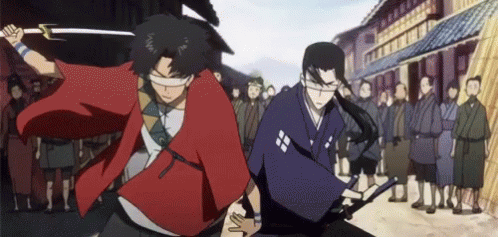
I enjoyed the story, visuals, and fight scenes. The other thing I enjoyed about “Samurai Champloo” was the hip-hop motif which would help lay the foundation for the current bad@$$ collision between hip-hop and anime.
This is a show that ages like fine wine.
After 20 years since it aired in 2004, “Samurai Champloo” remains one of the greatest anime series of the 21st century. This is one of those timeless classics that I’d happily watch again and again.
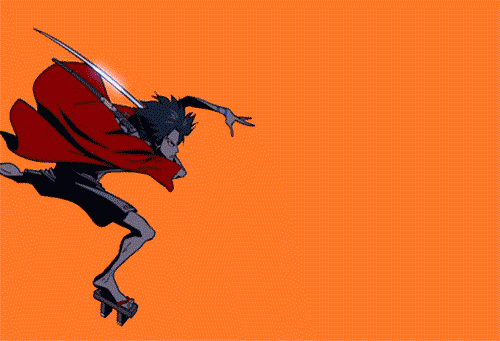
Shinichiro Watanabe would later on direct “Kids on the Slope,” “Space Dandy,” “Terror in Resonance,” and “Carole & Tuesday.” He also directed “Cowboy Bebop: Knockin’ On Heaven’s Door” and “Blade Runner Black Out 2022.”
The voice actors of the three main characters also worked together in “Gungrave.” While Thorton voiced Beyond the Grave, Blum voiced Balladbird Lee and Kari Wahlgren voiced Mika Asagi.
Read my longer version here: https://medium.com/@canhoangtran/20-years-later-samurai-champloo-remains-an-anime-g-o-a-t-19cc9ff2df5